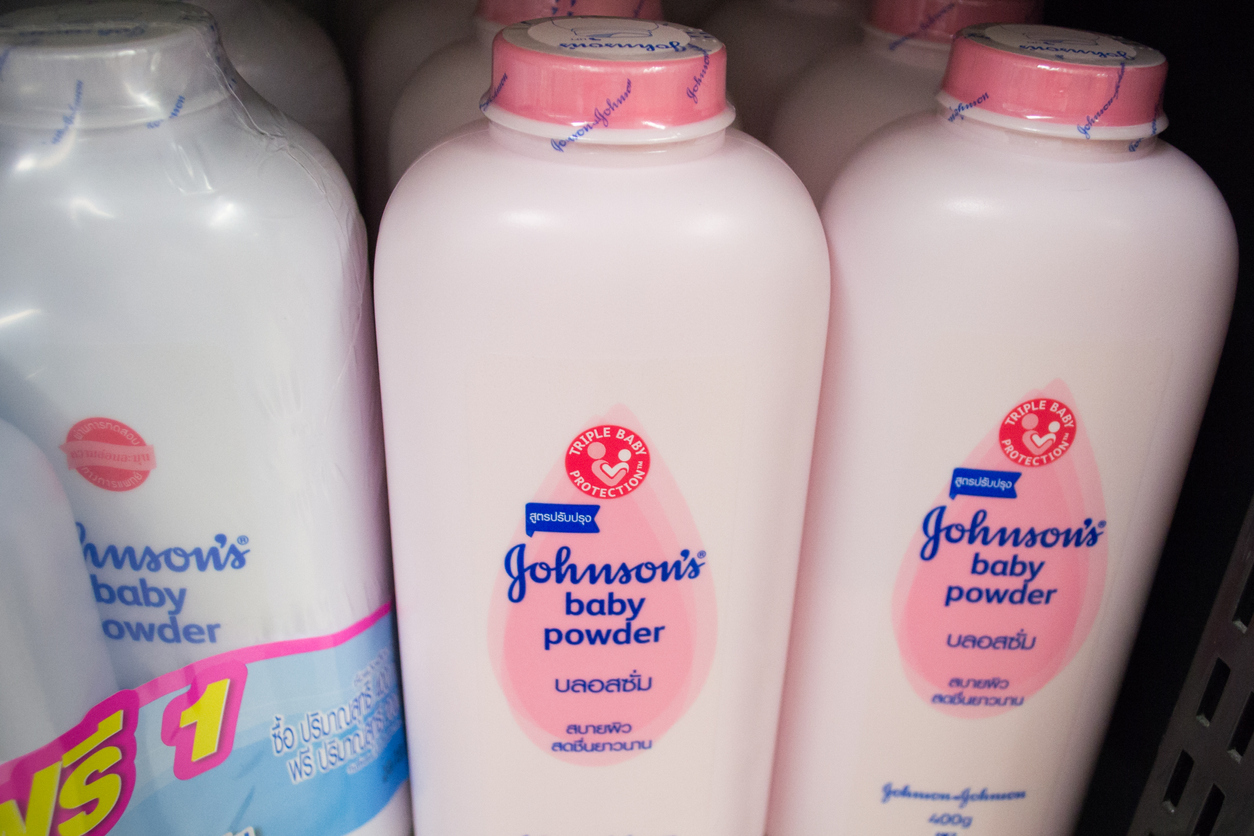Johnson & Johnson Proposes $6.48 Billion Settlement To Resolve Talcum Powder Lawsuits
Editors carefully fact-check all Consumer Notice, LLC content for accuracy and quality.
Consumer Notice, LLC has a stringent fact-checking process. It starts with our strict sourcing guidelines.
We only gather information from credible sources. This includes peer-reviewed medical journals, reputable media outlets, government reports, court records and interviews with qualified experts.

Johnson & Johnson is poised to settle nearly all U.S. cancer lawsuits claiming that its talcum baby powder and other talc products caused ovarian cancer, following a proposed $6.48 billion settlement announcement.
Pending claimant approval, the proposed settlement would enable J&J to address its talcum powder lawsuits by filing for bankruptcy a third time through its subsidiary, LTL Management. This subsidiary was specifically created to manage the company’s talc-related liabilities. However, courts have previously rejected Johnson & Johnson’s two earlier attempts to settle the lawsuits via LTL Management’s bankruptcy.
For the current plan to succeed, it needs 75% support during a three-month voting period. This threshold would allow for a bankruptcy settlement that would end litigation and prevent future lawsuits.
CNBC reported that J&J executives stated during a recent call with investors that the plan has “significant support of the overwhelming majority of the claimants.”
“We firmly believe this plan is in the best interest of claimants and should receive a favorable and immediate confirmation from the bankruptcy court,” said Erik Haas, Johnson & Johnson’s worldwide vice president of litigation, CNBC reported.
Voting was not allowed in the earlier attempts to settle.
Ovarian Cancer Lawsuits Could Come To An End
The pharmaceutical giant is facing nearly 54,000 talcum powder lawsuits in multidistrict litigation as of May 2024. If the proposed settlement is accepted, it would cover 99.75% of all lawsuits and pay out over 25 years.
The other remaining lawsuits allege that the talcum products caused another type of rare cancer called mesothelioma, which impacts the lungs. Those cases would not be part of this settlement and would be addressed at another time.
Johnson & Johnson maintains that its talcum products are safe, but pulled them from American shelves and later discontinued them to avoid future litigation, it said.
Haas told investors the settlement would be a better recovery for claimants than they would likely get in a trial, CNBC reported.
“As that track record shows, most of bearing claimants have not recovered, nor are they expected to ever recover anything at trial,” Haas said. “At the rate at which use cases have been tried, it would take decades to try the remaining cases meaning most claimants will never see their day in court.”
There are some cases where significant compensation was awarded in trial verdicts. A group of 22 women, who alleged they developed ovarian cancer from asbestos in Johnson & Johnson’s talc products, received about $2 billion.
“I believe J&J’s proposed plan announced today will bring peace and closure to our clients and the thousands of women who have fought by our side in the quest for justice,” lawyer Jim Onder, who represents tens of thousands of talc claimants told Reuters.
Another lawyer opposed to the settlement deal told Reuters he believed Johnson & Johnson’s effort to garner 75% support through voting was a “stuff the ballot box” initiative.
Mike Papantonio, an attorney opposed to the deal, accused J&J of “covertly soliciting law firms to accept their deal, promising a swift payday for some opportunistic lawyers.” The company denied the allegations.
J&J Set Aside Billions
Johnson & Johnson said it has set aside $11 billion to cover all of its talc-related settlements, including payouts beyond bankruptcy that include litigation with state attorney generals and mesothelioma claims.
In an earlier bankruptcy attempt, which was denied, J&J proposed an $8.9 billion settlement to address all claims — ovarian, mesothelioma and state-related issues.